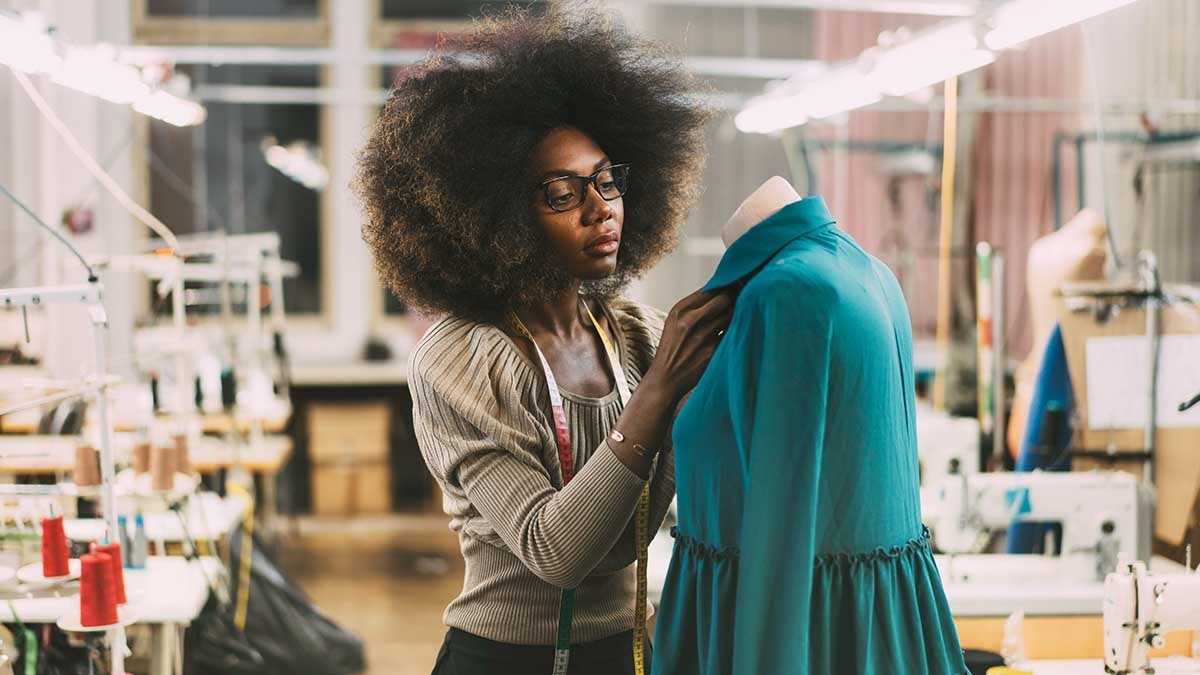Sign up for the Vogue Business newsletter for the latest luxury news and information, plus exclusive member discounts.
Could artificial intelligence be the key to reviving Made in UK?
Last week, the British industry received a boost when British knitwear company John Smedley announced a £4.5m investment to restart its third-party manufacturing after a 40-year hiatus. However, the truth is that less than 3 percent of clothing worn in the UK in 2023 was made in the country, according to Fibre2Fashion. The vast majority is still made in countries such as China, Bangladesh, Vietnam and Pakistan.
Amid an onslaught of sustainability legislation that will demand much greater transparency in the fashion supply chain, along with a recent pullback from China amid the US-China trade dispute, there is a growing push to bring manufacturing closer to home. But challenges remain to doing it at scale. According to experts, technology could play a transformative role.
“Unfortunately, the weavers, the spinners, the dyers, they don't exist [in the UK] more,” says Simon Platts, CEO of circularity platform Recomme and former responsible sourcing director at Asos. “The old days are gone, so it's about how we use AI and innovative technology to revitalize the industry.”
Elliot Barlow, a manufacturing consultant at the UK Fashion and Textile Association (UKFT) believes that AI has the potential to influence relocation opportunities in the UK. It targets small-batch responsive manufacturing, which uses artificial intelligence programs to account for current inventory levels while tracking market and consumer buying behavior. Some brands and manufacturers are testing an on-demand model.
“AI can support this by calculating, optimizing and reconfiguring workflows, bringing brands and manufacturers together,” says Barlow, adding that recent trials show that delivery times can be reduced to as little as five to 10 days from order to its completion.
These applications for AI are already being developed through a number of projects, such as those supported by the industry-funded Circular Innovation Fashion Network (CFIN), of which UKFT is a partner. However, Barlow believes it will be a couple of years before there is a sufficient critical mass of retail-sized production orders flowing through the UK manufacturing industry to fundamentally determine whether AI can support relocation at scale. .
Shorter delivery times, better forecasting
UK academic institutions are driving research and development into artificial intelligence and other technologies that could dramatically improve supply chain efficiency, paving the way for increased production.

